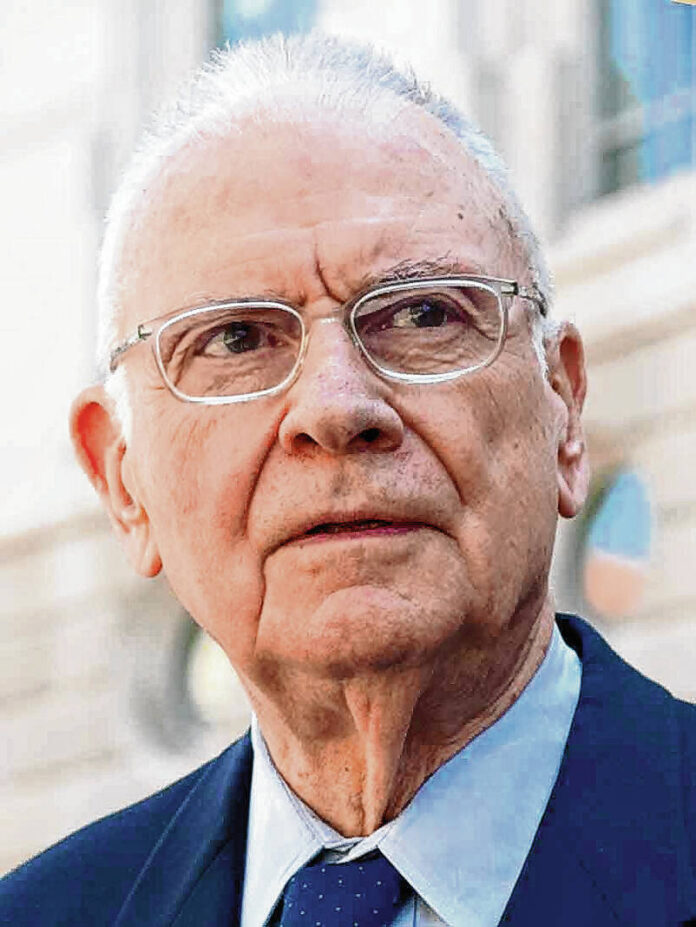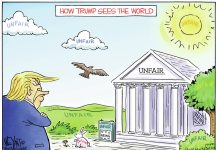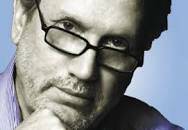Who are the most important Americans? It’s a question that’s sure to generate disagreement, maybe even passionate arguments. Everyone has a different idea of who they are.
Most of us would include presidents on the list: George Washington, Abraham Lincoln, maybe Franklin Roosevelt. We might look to America’s founders: Thomas Jefferson and James Madison (also presidents), Alexander Hamilton, Benjamin Franklin and others.
But government leaders aren’t the only ones who made the United States what it is. Inventors and entrepreneurs produce the tools and technologies that define our lives: Thomas Edison and Alexander Graham Bell come to mind, along with recent figures such as Steve Jobs and Bill Gates. Athletes, from Babe Ruth to Michael Jordan, inspire us and capture our admiration. Writers, artists and entertainers help us understand the world and add meaning to our lives. Activists and idealists push America to live up to its ideals.
Listing the most important Americans in different categories is one way to approach the question. That’s the tactic Smithsonian Magazine took a few years ago when it named “the 100 most significant Americans of all time.” Building on the work of computer scientists who created algorithms to rate the historical significance of world figures, the magazine created several lists of the most important Americans, only 11 of them presidents.
One of the most compelling categories was “rebels and resisters.” It included Thomas Paine, the pamphleteer who inspired the American Revolution; Frederick Douglass, the great 19th century abolitionist and orator; John Brown, whose ill-fated raid helped push the conflict over slavery to a crisis; and Martin Luther King Jr., who became the voice of the civil rights movement in the mid-20th century. It included women’s rights crusaders Susan B. Anthony and Elizabeth Cady Stanton and Native American leaders Tecumseh and Sitting Bull.
Women were underrepresented on the overall list, not surprisingly given their lack of full citizenship for much of our history. But the magazine rightfully recognized Helen Keller, Oprah Winfrey, Sojourner Truth, Jane Addams and other influential women.
Religious figures were prominent: Ann Hutchinson, William Penn, Roger Williams, Jonathan Edwards and Cotton Mather from the colonial era and Billy Graham from our own time. “Trailblazers” shaped the contours of the nation: the explorers Lewis and Clark and their guide Sacagawea, the mountaineer and wilderness champion John Muir; and Neil Armstrong, the first man on the moon.
We are a nation that loves sports, and athletes would be on many of our lists of important Americans; Jim Thorpe, Jackie Robinson, Muhammad Ali, Billie Jean King and others have inspired us with their skill. Pop icons like Mark Twain, Elvis Presley, Charlie Chaplin and Marilyn Monroe created a distinctly American culture. “Empire builders” Andrew Carnegie, Henry Ford and Walt Disney exemplified the genius of American capitalism.
The Smithsonian list also included Americans whose impact was arguably not positive: Robert E. Lee, who led the Confederate army in a bloody defense of slavery, as well as outlaws and villains like Jesse James, Al Capone and John Dillinger.
Of course, we could argue that our nation owes its greatness to millions of ordinary Americans who are little known outside their family and friends. Settlers who endured hardship to scratch out a living from the land. Immigrants who crowded into tenements and kept our factories running. Enslaved people who built fortunes for others. Soldiers who fought and died in our wars.
I’ve named a few important Americans, but I’ve certainly left out many deserving of mention. We all have our own ideas about who they are, and we will defend our choices passionately. That’s part of what makes us Americans.




